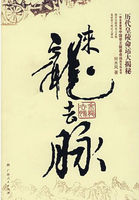In dealing with arguments that depend on Accident, one and the same solution meets all cases.For since it is indeterminate when an attribute should be ascribed to a thing, in cases where it belongs to the accident of the thing, and since in some cases it is generally agreed and people admit that it belongs, while in others they deny that it need belong, we should therefore, as soon as the conclusion has been drawn, say in answer to them all alike, that there is no need for such an attribute to belong.One must, however, be prepared to adduce an example of the kind of attribute meant.All arguments such as the following depend upon Accident.'Do you know what I am going to ask you? you know the man who is approaching', or 'the man in the mask'? 'Is the statue your work of art?' or 'Is the dog your father?' 'Is the product of a small number with a small number a small number?' For it is evident in all these cases that there is no necessity for the attribute which is true of the thing's accident to be true of the thing as well.For only to things that are indistinguishable and one in essence is it generally agreed that all the same attributes belong; whereas in the case of a good thing, to be good is not the same as to be going to be the subject of a question; nor in the case of a man approaching, or wearing a mask, is 'to be approaching' the same thing as 'to be Coriscus', so that suppose I know Coriscus, but do not know the man who is approaching, it still isn't the case that I both know and do not know the same man;nor, again, if this is mine and is also a work of art, is it therefore my work of art, but my property or thing or something else.(The solution is after the same manner in the other cases as well.)Some solve these refutations by demolishing the original proposition asked: for they say that it is possible to know and not to know the same thing, only not in the same respect: accordingly, when they don't know the man who is coming towards them, but do know Corsicus, they assert that they do know and don't know the same object, but not in the same respect.Yet, as we have already remarked, the correction of arguments that depend upon the same point ought to be the same, whereas this one will not stand if one adopts the same principle in regard not to knowing something, but to being, or to being is a in a certain state, e.g.suppose that X is father, and is also yours: for if in some cases this is true and it is possible to know and not to know the same thing, yet with that case the solution stated has nothing to do.Certainly there is nothing to prevent the same argument from having a number of flaws; but it is not the exposition of any and every fault that constitutes a solution: for it is possible for a man to show that a false conclusion has been proved, but not to show on what it depends, e.g.in the case of Zeno's argument to prove that motion is impossible.So that even if any one were to try to establish that this doctrine is an impossible one, he still is mistaken, and even if he proved his case ten thousand times over, still this is no solution of Zeno's argument: for the solution was all along an exposition of false reasoning, showing on what its falsity depends.If then he has not proved his case, or is trying to establish even a true proposition, or a false one, in a false manner, to point this out is a true solution.Possibly, indeed, the present suggestion may very well apply in some cases: but in these cases, at any rate, not even this would be generally agreed: for he knows both that Coriscus is Coriscus and that the approaching figure is approaching.To know and not to know the same thing is generally thought to be possible, when e.g.one knows that X is white, but does not realize that he is musical: for in that way he does know and not know the same thing, though not in the same respect.But as to the approaching figure and Coriscus he knows both that it is approaching and that he is Coriscus.
同类推荐
热门推荐
夏言蝉声微笑着说再见
你有爱过一个人吗?不是单纯的有好感和喜欢。是你想把他刻进心扉,你看到他受伤你会恨不得比他伤的千万倍,你看到他难过你会比他很难过。我有,我和爱他,恨不得把命都给他。你还记得我们在夏天的誓言吗?时光荏苒,我们还能回到从前吗?重生神医:上校的神兽妻
一朝重生,才知她的身世非同一般,身上也肩负着家族的重任。不过还好,她还有两个好姐妹的陪伴。一个意外的相遇,他闯进了她的生活;一个奇葩的原因,他对她死缠烂打。机缘巧合中,他一次又一次将她识破,对她更是纠缠不休。她自认为不会再次踏入爱情的漩涡,他却给她千金不换的承诺:“不管你是什么样子,是什么身份,只要是你就好。”来龙去脉:历代皇陵命运大揭密
中国古代皇陵是封建社会特有的产物,历代皇帝为了彰显自己皇权的威严、显示自己无比的尊贵,不惜集中大量的人力、物力、财力及天下之能工巧匠,多则四五十年,少则几年来营建自己的陵园。皇陵作为封建皇帝的地下王国,完全按照“事死如事生、事亡如事存”的礼制原则建造,其奢侈豪华是不言而喻的。但正因为此,它成了吸引盗墓者的诱饵,成了历代盗墓者的最爱。















